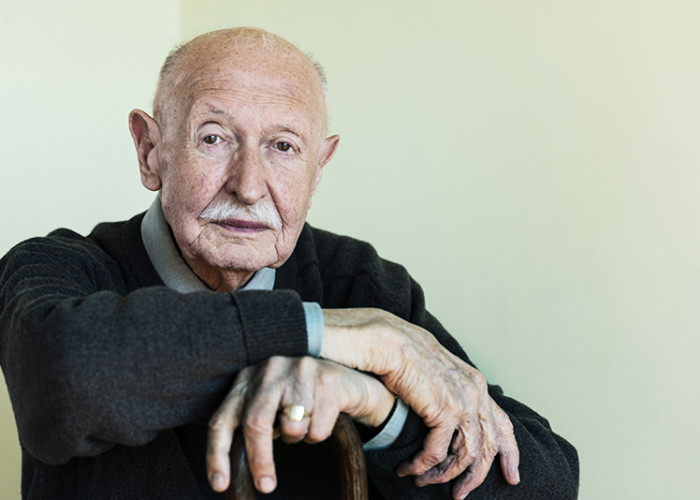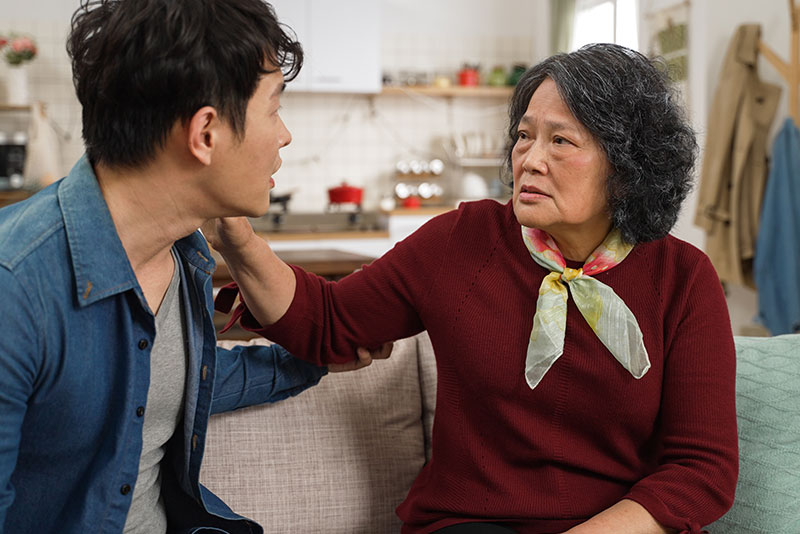Care Manager
Senior Independence vs. Safety: A Common Family Conflict
It’s not uncommon for families to have conflict over honoring senior independence vs. safety.
It’s a conflict that occurs for numerous families: seniors are adamant about wanting to age in place in their own home, while their relatives worry about their safety and well-being. And there’s an argument to be made in both scenarios. Seniors, specifically individuals who live alone, confront multiple risks: falls that could possibly result in significant injury, trouble in maintaining the lifestyle to which they’ve become accustomed as aging progresses, even a susceptibility to scam artists. Nonetheless, senior independence is one of the keys to self-worth.
Identifying a balance that fits the requirements of both sides may be challenging, but there are several important factors to consider that can make a difference.
Let go of ageism. While there is credibility to worries over safety for … Read More »
Family Dynamics: How to Provide Care for a Loved One You Really Don’t Like
Family dynamics can make it challenging to provide care for a loved one with whom you have a difficult relationship.
When it comes to caring for a family member, family dynamics can play a big part in the caregiver’s outlook. For those who have been brought up by loving parents who provided for all their needs, providing the same standard of care may simply be second nature. But what if you’ve been scarred by childhood experiences, determined to keep your distance from difficult family members later in life, simply to end up going back to provide assistance for them in a period of need?
AARP offers some helpful tips for family members who want to conquer old wounds in the interests of providing care:
Set emotional boundaries. It’s possible to give compassionate home care while staying emotionally detached. Just … Read More »
3 Things You Should Never Say to Someone Facing a Health Concern
When a friend or loved one is facing a health concern, it’s important to know what not to say.
Have you ever walked in to the office or a get-together with friends or family and had a person say to you with great concern, “You really look tired today!” Although you may have been feeling pretty perky before that interaction, without warning you may suddenly actually feel exhausted and rundown. The words we use with each other and the manner by which we interpret them are meaningful. And when speaking with people who have a long-term health concern, it’s very important to thoughtfully think about what to express, and maybe more importantly, what NOT to say, that can help the person feel his or her best.
While we are surely well meaning, there are specific comments which are … Read More »
Key Questions to Ask the Dr. as a Parent’s Caregiver
Every family caregiver should get answers to these questions from the doctor.
Of the many responsibilities a family caregiver faces, perhaps one of the more difficult is managing health concerns and knowing what questions to ask the Dr. as your parent’s caregiver. The National Council on Aging estimates that approximately three quarters of all seniors are clinically determined to have at least two chronic illnesses, and are seeing on average of four medical specialists.
Hired Hands Homecare, offering in-home care in Napa, CA and the surrounding communities, offers these simple tips to communicate effectively with those on the senior’s medical team:
Are all of the medications essential? With most older adults taking many medications, you’ll need to keep an in-depth list and review occasionally with the doctor along with the pharmacist, each of whom should be able to make … Read More »
Is It Possible to Juggle Work and Caregiving?
Trying to juggle work and caregiving can have a negative impact on everyone involved.
In the modern world, it is often difficult enough to maintain a work-life balance, but that is made nearly impossible when it comes to attempting to juggle work and caregiving. Up to 25% of employed adults are providing some level of care for aging parents or family members. How do you work a full-time job when a loved one needs care around the clock? Oftentimes, it simply is not possible. Hired Hands Homecare, providing home care in Napa, CA and the surrounding areas, has tips to help.
The Importance of Aging with Dignity for Older Adults
Aging with dignity is important for an older adult’s self-esteem.
It is quite easy to get swept up in the daily tasks of caregiving for a senior you love. There’s so much to be done, and sometimes it’s just easier and a lot more efficient to do it all on your own, letting the senior relax. After all, our elders have taken care of things for a lifetime; haven’t they earned a break?
The truth however, is that aging with dignity is incredibly necessary to our wellbeing, something that comes from having a sense of purpose and meaning in life. And even though ensuring safety is, without a doubt, our primary concern, there are ways to empower a senior loved one in your care to remain in control whenever possible. For instance:
Work together on projects. While standing … Read More »
Caring for Elderly Parents: What to Do When Siblings Avoid Helping
It’s not unusual for some siblings to avoid helping to care for elderly parents.
If you are responsible for most of the care for elderly parents while your siblings distance themselves from helping, you are not alone. In fact, 50% of all family caregivers are caring for an aging loved one alone, based on a recently available report from AARP.
Understanding why this situation is so typical – and learning what can you do to safeguard your own personal health, which can easily be impacted by providing care for a senior loved one on your own – is critical. Our aging care experts have the answers.
Family members do not recognize there is a need for assistance. It may very well be that from the outside looking in, you have everything covered and running smoothly, and are not in … Read More »
Resolving Sibling Conflict when Caring for Aging Parents with an Elder Mediator
An elder mediator can help siblings resolve differences when caring for aging parents.
When it comes to working together in caring for aging parents, even the closest of siblings could find themselves in conflict. Stress levels and emotions are, of course, running high. Add to that your past family dynamics and history, which tend to resurface during challenging times, and it’s easy to see how difficult this stage in life can be for each of you.
The most prevalent aspects of contention among siblings include financial decisions, differing opinions on medical treatments or living arrangements, and an unfair balance of tasks pertaining to caregiving, just to mention a few.
Sometimes, no matter how hard you try, you and your siblings are just unable to arrive at an understanding on precisely how to best care for your aging parents. … Read More »
Act FAST When Responding to a Stroke
Time matters when responding to a stroke. Learn the warning signs and why it’s important to act FAST.
As the fifth leading cause of death and number one cause of disability in the United States, strokes are a major health concern. Knowing the warning signs and risk factors for a stroke are critically important, as the longer someone suffers a stroke without treatment, the higher the likelihood of disability or death. That’s why when it comes to responding to a stroke, time is of the essence.
A stroke occurs when there is a blood clot or hemorrhage in the brain. A recent study from the American Heart Association has revealed that for every 15-minute delay in delivering a clot-busting drug after a stroke, there are a variety of long-term implications. This is because returning healthy blood flow to … Read More »
Care Tips for Seniors With Dysphagia
Seniors who have dysphagia can benefit from a variety of easy-to-implement care tips.
There’s nothing better than a tall, cold drink on a warm summer day, but for someone with dysphagia, this simple pleasure can be downright dangerous. There are millions of seniors with dysphagia – or trouble swallowing – due to weakened mouth and/or throat muscles. Alzheimer’s, MS, cancer, and stroke are all culprits as well.
Signs of dysphagia include:
Drooling
Coughing, gagging or choking when eating, drinking, or taking medication
A gurgling sound in the senior’s voice after eating/drinking
Additionally, if you suspect dysphagia in an older family member, ask him or her the following questions – and check with the doctor right away for further guidance:
Are you coughing or choking when trying to eat or drink?
Are you having frequent problems with food “going down the wrong pipe?”
Is food … Read More »

















